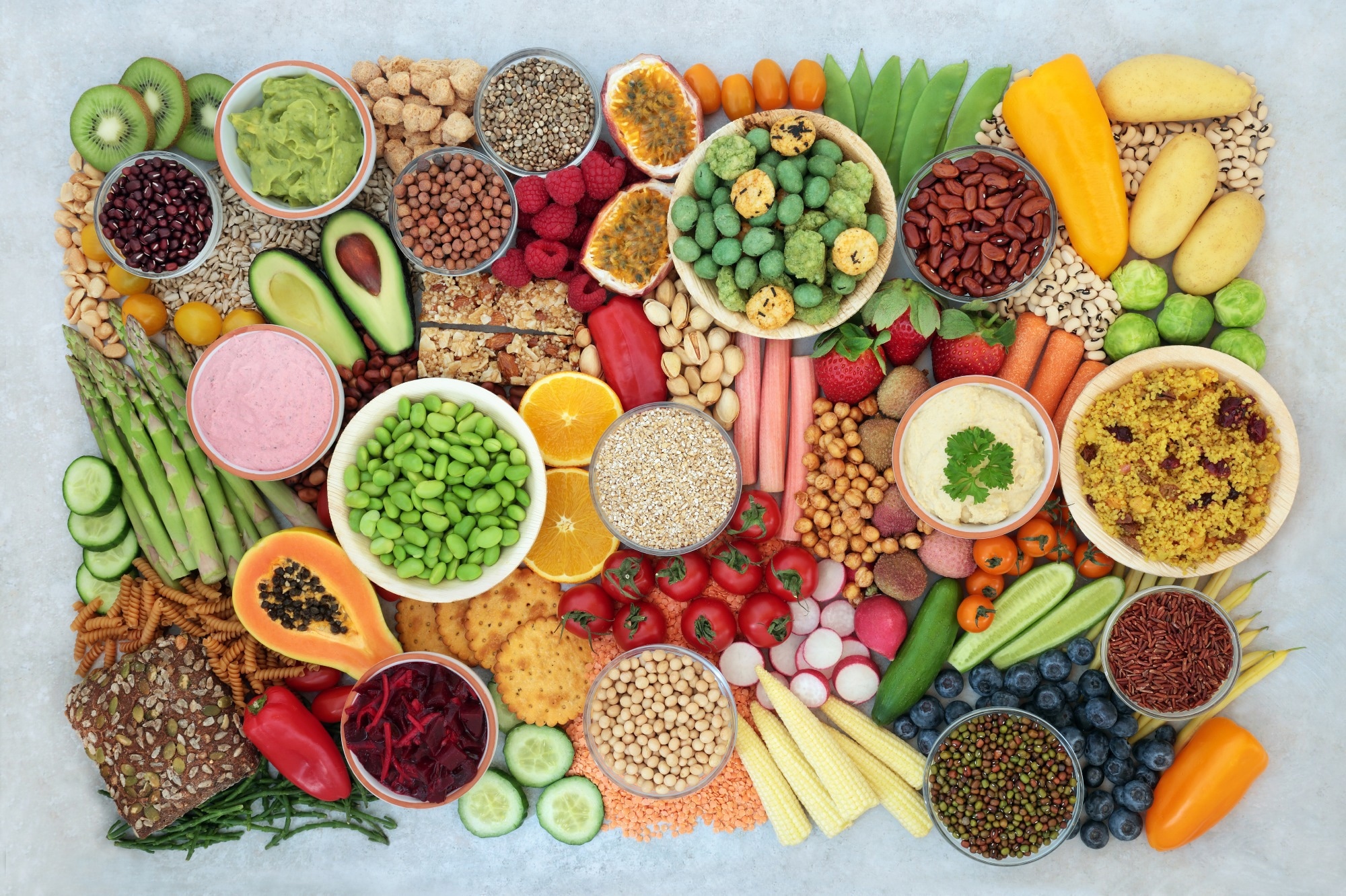Their results indicate a possible link between adherence to predominantly plant-based diets and better health outcomes related to prostate cancer among males who have this condition.
 Study: Plant-Based Diets and Disease Progression in Men With Prostate Cancer. Image Credit: marilyn barbone/Shutterstock.com
Study: Plant-Based Diets and Disease Progression in Men With Prostate Cancer. Image Credit: marilyn barbone/Shutterstock.com
Background
Plant-based dietary patterns, which incorporate a significant portion of daily caloric intake from plant-based sources such as whole grains, fruits, and vegetables, have become popular in recent years.
Adherence to these diets has been linked to various nutritional and health benefits, including for people living with chronic diseases such as prostate cancer. However, whether complying with plant-based dietary recommendations could lead to better outcomes for people with prostate cancer after they are diagnosed with the condition.
About the study
In this study, researchers assessed individuals’ consumption of plant-based food items after they were diagnosed with prostate cancer and evaluated their clinical outcomes.
The study aimed to investigate the impact of post-diagnosis consumption of plant-based food items on clinical outcomes in prostate cancer patients, focusing on two diet indices: an overall plant-based diet index (PDI) and a healthful plant-based index (hPDI).
Both PDI and hPDI, previously associated with various health outcomes, were hypothesized to correlate with lower probabilities of the progression of prostate cancer and mortality related to the condition.
The study employed a cohort design using data collected by the Cancer of the Prostate Strategic Urologic Research Endeavor (CaPSURE), involving 15,310 men diagnosed with prostate cancer between 1999 and 2018 from urology practices across the United States. Participants completed validated dietary questionnaires between 2004 and 2016.
A semiquantitative food frequency questionnaire (FFQ) was utilized to assess dietary habits, covering 140 food items. The PDI and hPDI were calculated based on the frequency of consumption of 18 food groups, categorized into healthful, unhealthful, and animal foods.
The primary outcome was time to prostate cancer progression, including mortality, biochemical recurrence, bone metastases, and secondary treatment.
Cox proportional hazard models were employed to evaluate associations between PDIs and outcomes, adjusting for various clinical and lifestyle factors.
Secondary analyses explored associations of individual food groups with outcomes and examined potential effect modifications by demographic and clinical variables.
Findings
The study encompassed 2,062 participants meeting the inclusion criteria, predominantly comprising individuals identifying as White; the median age at diagnosis was 65.
The highest quintiles of the PDI and hPDI were associated with favorable attributes including faster walking pace, lower body mass index (BMI), lower diagnostic prostate-specific antigen (PSA), and lower smoking rates than the lowest quintiles.
Regarding dietary scores, the PDI and hPDI demonstrated a moderate positive correlation, with scores ranging from 27 to 76 for PDI and 29 to 84 for hPDI.
Examination of dietary components revealed notable contrasts between the highest and lowest quintiles. Individuals in higher quintiles generally consumed more servings of vegetables, fruits, and whole grains, reducing their dairy and animal fat intake.
Analysis of hazard ratios (HRs) for prostate cancer progression revealed significant associations with PDI, indicating a 47% lower risk of progression in the highest quintile compared to the lowest.
However, no significant association was observed with hPDI. Secondary analyses focusing on prostate cancer-specific mortality did not yield statistically significant associations, although wider confidence intervals limited definitive conclusions.
Exploratory analyses delving into potential effect modifications by demographic and clinical factors revealed significant interactions only related to Gleason grade at diagnosis, particularly modifying the association of hPDI with prostate cancer progression.
Conclusions
In this study, researchers explored the link between plant-based dietary patterns post-prostate cancer diagnosis and prostate cancer progression.
Notably, higher scores on the overall PDI were associated with reduced risk of progression, aligning with prior research indicating the potential benefits of plant-based diets for prostate cancer outcomes.
However, no significant associations were found with the hPDI, concurring with findings from previous work.
The authors acknowledged certain limitations; the reliance on self-reported data can lead to potential measurement errors, as even validated questionnaires can be subject to inaccurate reporting for dietary intake.
Many participants with high PDI scores also consumed dairy and meat, limiting the ability of the study to assess the impact of fully plant-based diets. Another issue was the demographic composition of the study, which primarily consisted of White men with college educations.
This research contributes to the growing body of evidence supporting the role of plant-based diets in promoting health, particularly in the context of prostate cancer.
However, further research is warranted to elucidate the complex interplay between dietary patterns and prostate cancer outcomes, particularly in subgroups stratified by clinical characteristics such as Gleason grade. Future studies should also focus on more diverse populations.
Journal reference:
-
Liu, V.N., Van Blarigan, E.L., Zhang, L., Graff, R.E., Loeb, S., Langlais, C.S., Cowan, J.E., Carroll, P.R., Chan, J.M., Kenfield, S.A. (2024) Plant-based diets and disease progression in men with prostate cancer. JAMA Network Open. doi:10.1001/jamanetworkopen.2024.9053. https://jamanetwork.com/journals/jamanetworkopen/fullarticle/2818122